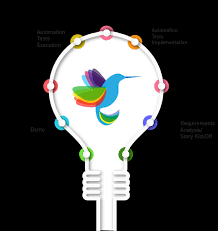Look for These Following Steps from Your QA Testing Services

The software testing process involves the deployment or execution of a program to identify glitches and bugs. However, that definition is quite trivial. What testing does is to determine if the software has met government standards and its technical requirements.
Simply put, software testing services make sure the software performs its intended function and purpose.
It is wrong to dump all the problems on the lap of the quality assurance (QA) engineer. Finding a bug should not only be the role of the tester. Everybody involved in the project has the responsibility to check the software within the scope of their expertise.
For instance, software developers must also run their tests using available apps before turning the product to the engineer.
Who are the other people involved in the project?
- Business analyst
- Test manager
- Project manager
- Lead developer
- Software architect
- Support teams
- Project owner
They all have a role to play to guarantee so that the software will be free of glitches when it is rolled out in the market.
How Engineers Should Properly Conduct Software Checks
Here are the steps that QA testing services typically follow during software checks:
1. Testing for functionality
The engineer will poke and prod the software. Push all the buttons and keys to make sure they are functional. He will then write some text and see if the software does not crash with this little change. If the software is run through an API, the engineer will also test for defects, glitches, and crashes on the essential functions. After the initial run-through, the QA engineer is now ready to go deeper by trying out different combinations, scenarios, edge conditions, and characters.
2. Static Code Test
The QA engineer will then run a tool that will analyze the source code or bytecode behind the scenes. In this type of testing, the engineer will not execute the source code. The goal is to spot weaknesses, redundancies, and vulnerabilities. The test will also include the security vulnerability of the source code.
3. Analyzing Source Code
Developers spend hundreds of hours writing the source code. They consider the software their baby. As such, it will potentially create a blind spot. They cannot see the problem even if it is staring them in the face. Hiring QA testing services will provide a fresh perspective.
4. Testing each unit
Unit testing must start during the development process. Software architects or development teams should test the class, component, or method to determine functionality. Every time you make changes to the script, you rerun the unit test. The whole process can be monotonous, but it is no less crucial to guarantee the success of your build.
Finally, the QA engineer will run a single-user performance testing. When you test the performance of the software, you look for the responsiveness, stability, and speed of the software. You run the software through a series of stress tests or real-world scenarios and gauge its performance. Under this type of test, a single user will try to open a function and see if it meets the industry standards for performance. If the performance is not up to par, the engineer may write the issue on the final report or try to look at the cause of the problem.
